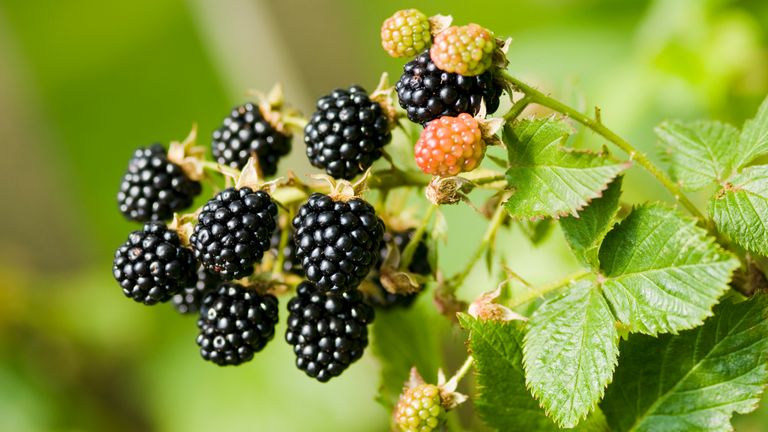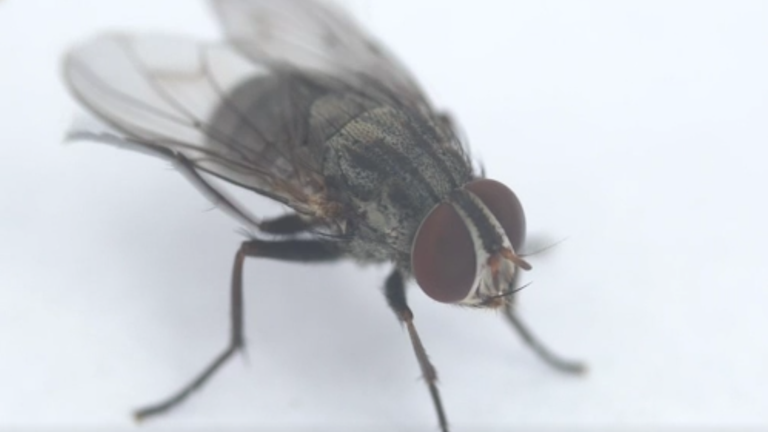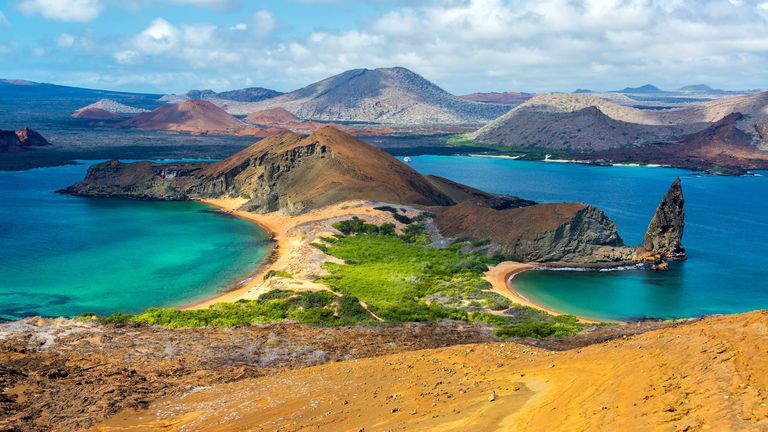The two species were introduced to the set of islands decades ago, but have slowly caused other key animals and plants to start dying out.
Wednesday 5 October 2022

:Blackberries have been destroying other plant species.
Invasive blackberry bushes and blood-sucking vampire flies are threatening the precious ecosystems of the Galapagos Islands - with some animals already in danger of extinction.
The two species were introduced to the archipelago in Ecuador by accident decades ago, but have slowly caused havoc as no measures are available to immediately control their spread.
The small fly is now one of the most challenging conservation problems facing the delicate ecosystem.
Feeding on blood to reproduce, the fly threatens more than 20 species of finches, which are one of the islands' emblematic birds, and has caused their population to decline.
It leaves its larvae in the nests of the birds, some of which are in danger of going extinct, then infests the chicks to the point of killing them.
Six years ago, scientists analysed the effectiveness of a wasp that could control the fly, but they wanted to ensure they did not affect other insects endemic to the islands before introducing them.
"Galapagos is at risk," the executive director for the Charles Darwin Foundation, Rakan Zahawi warned.
Invasive blackberry bushes and blood-sucking vampire flies are threatening the precious ecosystems of the Galapagos Islands - with some animals already in danger of extinction.
The two species were introduced to the archipelago in Ecuador by accident decades ago, but have slowly caused havoc as no measures are available to immediately control their spread.
The small fly is now one of the most challenging conservation problems facing the delicate ecosystem.
Feeding on blood to reproduce, the fly threatens more than 20 species of finches, which are one of the islands' emblematic birds, and has caused their population to decline.
It leaves its larvae in the nests of the birds, some of which are in danger of going extinct, then infests the chicks to the point of killing them.
Six years ago, scientists analysed the effectiveness of a wasp that could control the fly, but they wanted to ensure they did not affect other insects endemic to the islands before introducing them.
"Galapagos is at risk," the executive director for the Charles Darwin Foundation, Rakan Zahawi warned.
"I say it not only to create some visibility in that sense, but because we really have strong challenges in Galapagos."


Vampire fly has put some animals at risk.
The killer blackberry
He has also warned of the invasive blackberry species, which aggressively destroys crops and other plants.
As a result, vast areas have been turned into blackberry forests, with birds dispersing of the plant's seeds across different zones after eating the fruit.
For 13 years, scientists have been testing a Chinese fungus that is designed to only attack the plant, but the research has not yielded any firm results.

The killer blackberry
He has also warned of the invasive blackberry species, which aggressively destroys crops and other plants.
As a result, vast areas have been turned into blackberry forests, with birds dispersing of the plant's seeds across different zones after eating the fruit.
For 13 years, scientists have been testing a Chinese fungus that is designed to only attack the plant, but the research has not yielded any firm results.

The Galapagos Islands' ecosystem is under threat. Pic: iStock
More than 20 scientific institutions from across the world have been involved in finding solutions to the "quite big challenges", Mr Zahawi explained.
The Galapagos Islands are very biodiverse, and home to a wide range of species, such as its iconic giant tortoises and iguanas.
This is because it has many different habitat zones, including coral reefs, highland forests, sand dunes and scrubland.
In 1979, the group of islands was declared a natural heritage of humanity site for its animal, plant, terrestrial and marine species.
More than 20 scientific institutions from across the world have been involved in finding solutions to the "quite big challenges", Mr Zahawi explained.
The Galapagos Islands are very biodiverse, and home to a wide range of species, such as its iconic giant tortoises and iguanas.
This is because it has many different habitat zones, including coral reefs, highland forests, sand dunes and scrubland.
In 1979, the group of islands was declared a natural heritage of humanity site for its animal, plant, terrestrial and marine species.
No comments:
Post a Comment